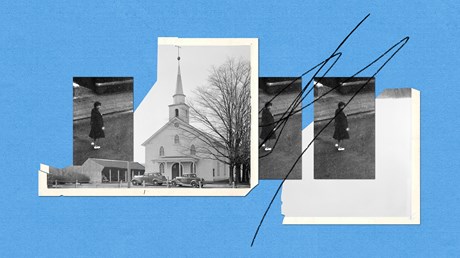What exvangelicals teach us about our religious roots.

Like many of my peers, I am a child of American evangelicalism. I was born to professing parents, made my own public statement of faith at five, and was baptized a few years later—still so tiny that my pastor had to lift me up to reach the microphone. My parents themselves were raised in the broader evangelical movement and shared many of the same religious rites of passage: baptism, communion, VBS, church camp, and eventually Christian college.
My paternal grandparents were steady churchgoing people, while my maternal grandparents came to faith through the revivals of the World War II era. Beyond that, things get murky. My family and I have discovered that some of my father’s forebearers were Anabaptists, but no relatives in living memory were part of that tradition.
I’ve occasionally wondered when exactly my ancestors might have converted from paganism to Christianity or what churches they would have worshiped in, but I don’t know the answers. And I have no way of finding out.
Such is the dilemma of many American evangelicals. In much the same way that countless immigrants gradually lost their ethnic heritage and traditions to racial categories, American evangelicals often lack a sense of our religious roots. As interfaith leader and rabbinic scholar Yehiel Poupko recently told me, “Neither Jews nor Christians pay enough attention to the influence of American culture on their respective faith communities.”
Due in part to the pull of assimilation, our lack of attention also stems from the distinctly modern way evangelicals understand faith—as an individual expression of belief or experience.
In his new book, You Are Not Your Own, Alan Noble argues that, while the American church ...
from Christianity Today Magazine
via


.gif)

.gif)
.gif)
